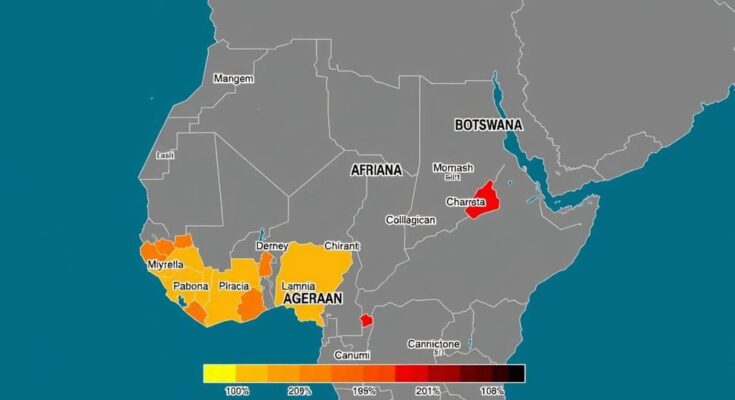In Botswana, President Mokgweetsi Masisi has conceded defeat in the recent elections, which have ushered in a significant political change. The BDP, having ruled since independence, lost to the opposition coalition, UDC, driven by public dissatisfaction over socio-economic issues. This outcome reflects a growing trend of electoral challenges faced by long-dominant parties in southern Africa.
In a historic shift for Botswana, President Mokgweetsi Masisi conceded defeat in the recent parliamentary elections, marking the end of the ruling Botswana Democratic Party’s (BDP) nearly 60-year reign. Preliminary results indicated a substantial loss for the BDP, with the opposition coalition, Umbrella for Democratic Change (UDC), securing a commanding lead. This change is primarily attributed to the growing socio-economic discontent among the population, especially the youth, stemming from an economic downturn exacerbated by a slump in the global diamond market, which heavily impacts Botswana’s economy. As the results continued to come in, with more than half of the constituencies reported, the UDC had claimed 26 seats while the BDP managed a mere three. Duma Boko, the leader of the UDC, is poised to take over the presidency, following a campaign centered on progressive social reforms, including increasing the minimum wage and social grants. At a press conference, President Masisi acknowledged his defeat and expressed his respect for the electoral outcome, stating, “Although I wanted to stay on as your president, I respect the will of the people and I congratulate the president-elect. I will step aside and I will support the new administration.” Local celebrations erupted in the capital, Gaborone, as citizens expressed their pride in initiating a new chapter for Botswana and moving away from prolonged BDP governance. This electoral outcome serves as a notable warning to long-standing ruling parties in the region, highlighting the critical importance of economic improvement and the provision of job opportunities to maintain political power.
Botswana has been governed by the Botswana Democratic Party since achieving independence from Britain in 1966. The BDP’s lengthy tenure has been characterized by relative stability, but recent years have seen increasing public dissatisfaction due to stagnation in economic growth and high unemployment rates, particularly among young people. Botswana’s economy is heavily reliant on diamond exports; however, a recent downturn in the global diamond market has led to significant challenges, including a 28% unemployment rate. This electoral context highlights broader trends across southern Africa, where long-established political parties are facing unprecedented opposition and electoral challenges due to economic grievances among their citizens.
The recent elections in Botswana, resulting in the defeat of the ruling BDP, underscore a critical moment in the nation’s political landscape, reflecting a broader regional trend of declining support for long-standing political parties. The rise of the Umbrella for Democratic Change and the prioritized issues of socio-economic reform signal a shift in the political consciousness of the electorate, particularly the youth. This event not only reshapes the future of Botswana but also raises significant implications for other long-ruling parties across southern Africa.
Original Source: www.cnn.com




